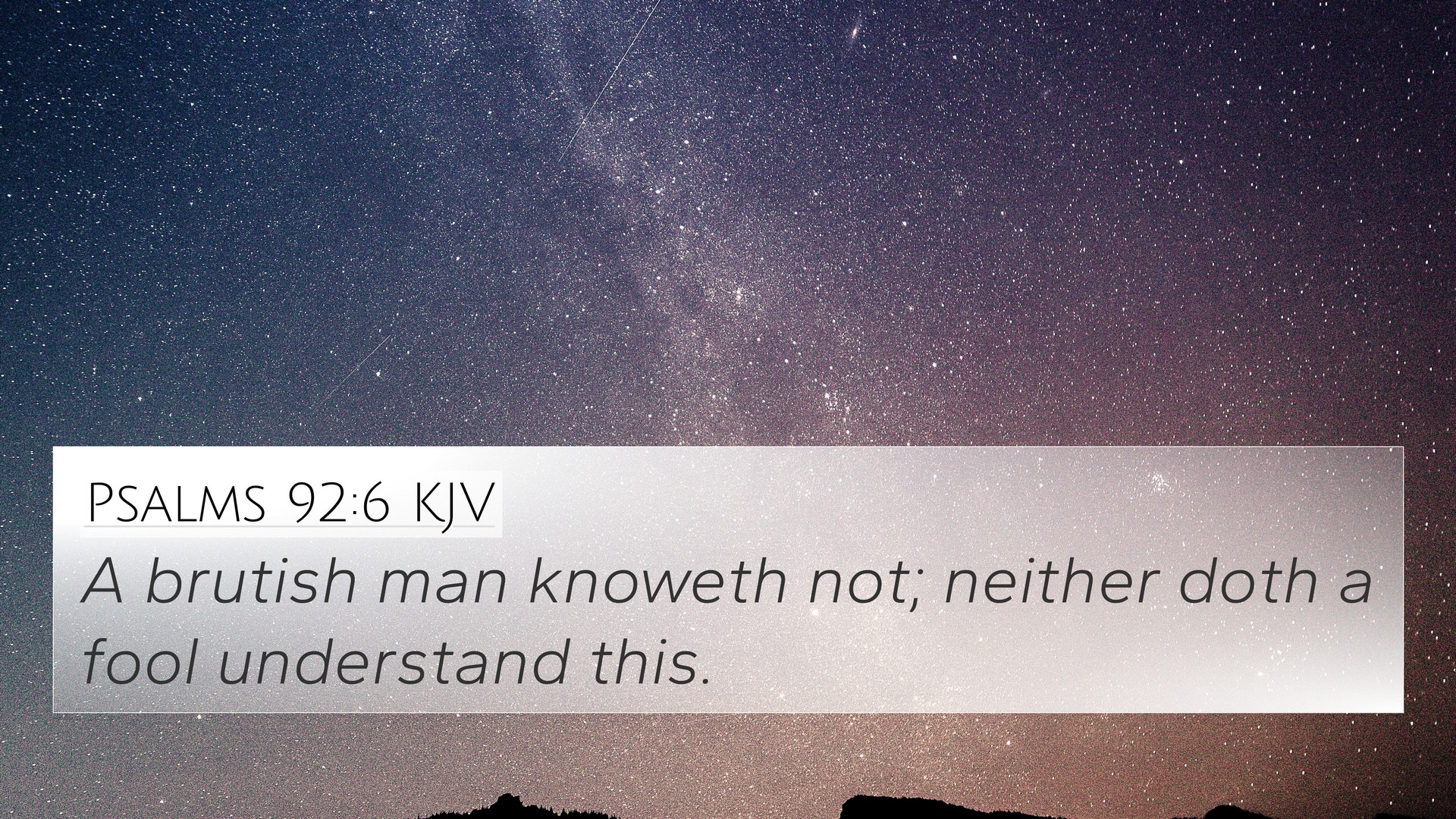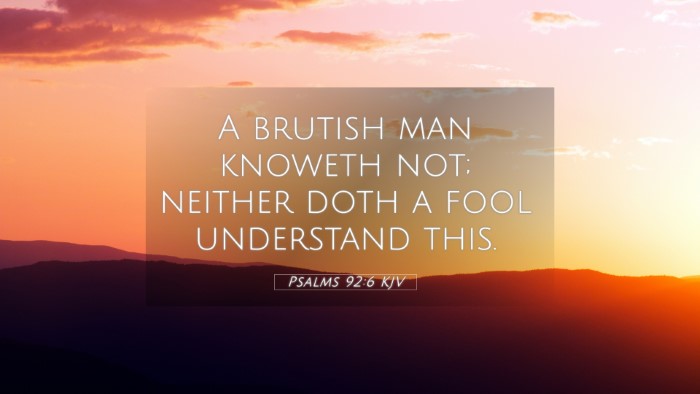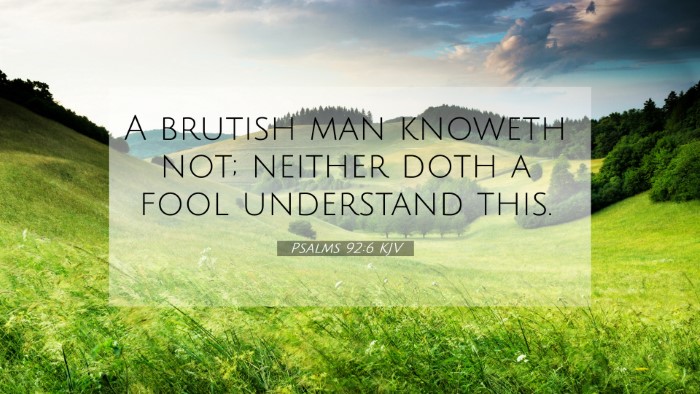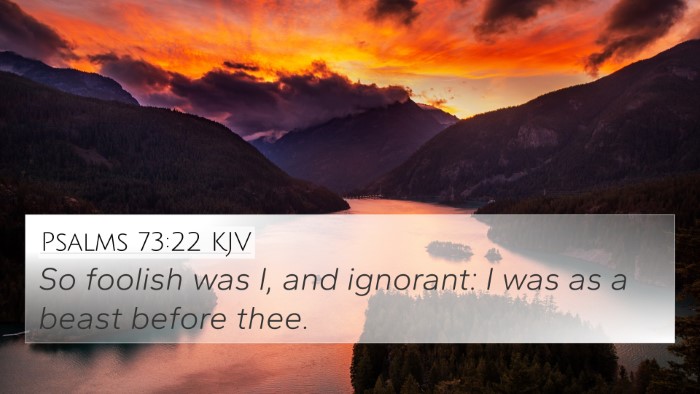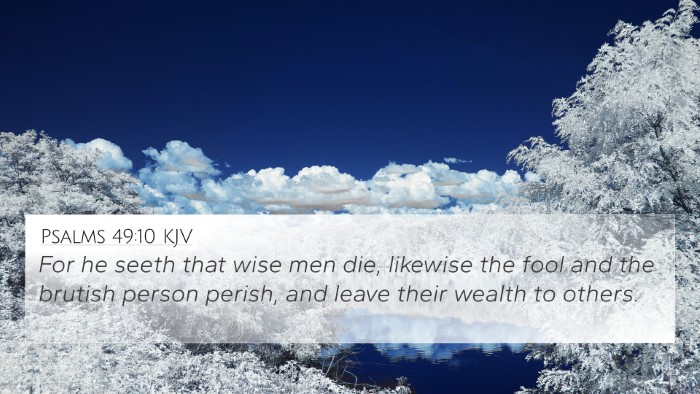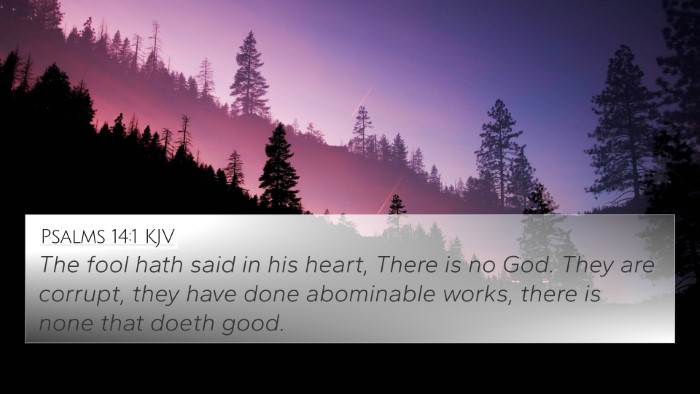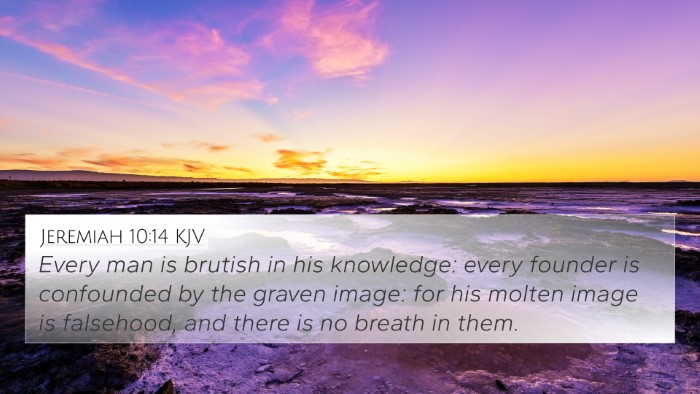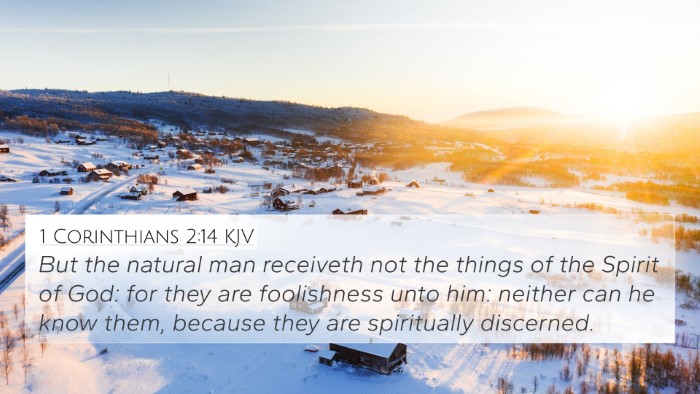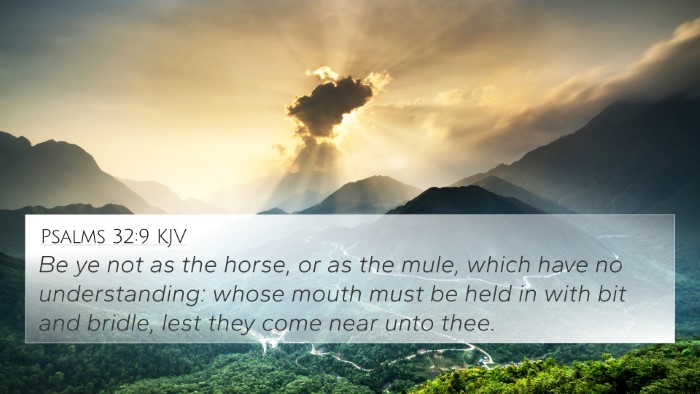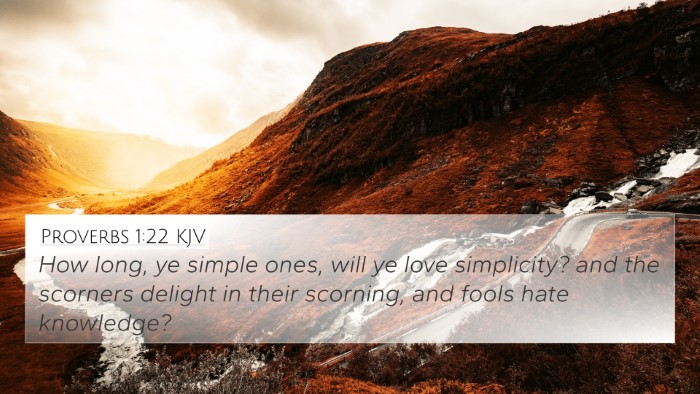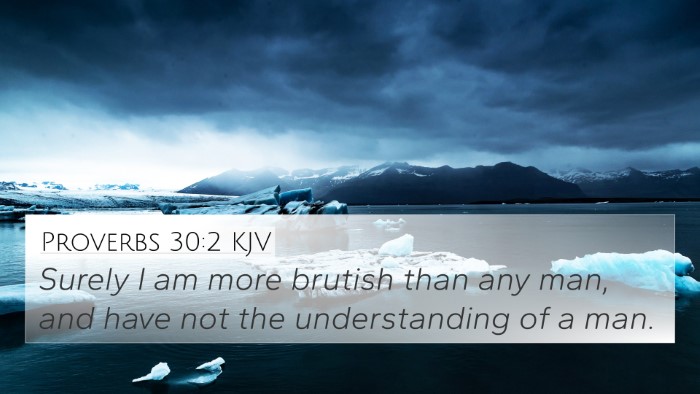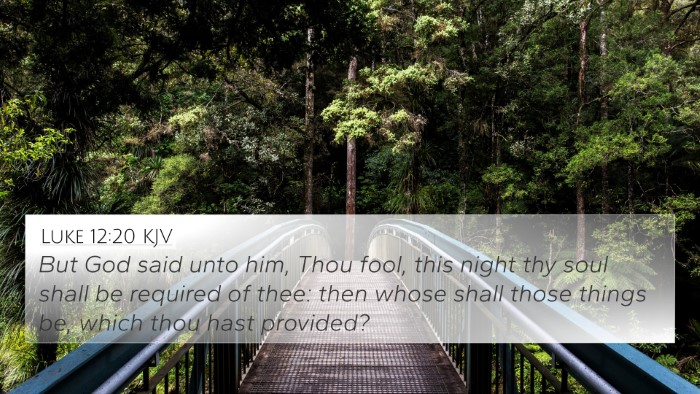Understanding Psalms 92:6
Verse Context:
Psalms 92:6 reads: “A brutish man knoweth not; neither doth a fool understand this.” This verse draws attention to the spiritual blindness of those who are morally and intellectually incapable of understanding God's creation and His works.
Interpretation and Meaning
This verse highlights a key theme in the Book of Psalms: the contrast between the wise and the foolish, particularly in their understanding of God's majesty and purpose. When examining this verse through the lenses of prominent commentaries, we uncover deeper insights.
Insights from Matthew Henry
Matthew Henry emphasizes that the "brutish man" represents those who lack spiritual insight. He describes them as people disconnected from the truth, unable to perceive the works of God around them. This lack of understanding leads to a rejection of divine wisdom, demonstrating how ignorance can result in folly. Henry underscores the importance of seeking knowledge and understanding divine truth to avoid this pitfall.
Albert Barnes’ Commentary
Albert Barnes elaborates on the term "brutish," indicating that it refers to being devoid of understanding or wisdom. He connects this to the idea that spiritual blindness is akin to an animal-like state. Barnes also reflects on the consequences of this ignorance; without the ability to comprehend God's power, these individuals fail to acknowledge His grandeur and the lessons embedded in creation.
Adam Clarke’s Perspective
Adam Clarke takes a deeper look into the Hebrew terms used in this verse. He points out that the root word for "knoweth" implies a deeper experiential knowledge that is absent in the brutish man. Clarke also makes a comparative analysis, suggesting that this foolishness is a choice driven by a rejection of God's revelations and therefore results in profound ignorance regarding life and the universe.
Connections with Other Scriptures
Psalms 92:6 connects with several other Bible verses that emphasize the contrast between wisdom and folly. Below are some essential cross-references:
- Psalm 14:1: “The fool hath said in his heart, There is no God.” - Explains the depth of foolishness in denying God.
- Proverbs 1:7: “The fear of the Lord is the beginning of knowledge: but fools despise wisdom and instruction.” - Highlights the essential foundation of knowledge.
- Proverbs 18:2: “A fool hath no delight in understanding, but that his heart may discover itself.” - Illustrates a selfish pursuit of understanding over divine insight.
- Isaiah 27:11: “When the boughs thereof are withered, they shall be broken off: the women come and set them on fire: for it is a people of no understanding: therefore he that made them will not have mercy on them…” - Speaks to the fate of those lacking understanding.
- Romans 1:21: “Because that, when they knew God, they glorified him not as God, neither were thankful; but became vain in their imaginations, and their foolish heart was darkened.” - Describes the cycle of folly stemming from a failure to recognize God.
- 1 Corinthians 1:18: “For the preaching of the cross is to them that perish foolishness; but unto us which are saved it is the power of God.” – Displays the divergence in understanding related to divine truth.
- Job 38:2-3: “Who is this that darkeneth counsel by words without knowledge? Gird up now thy loins like a man; for I will demand of thee, and answer thou me.” - Communicates the authority of God over human folly.
Thematic Analysis
The overarching theme of Psalms 92:6 reflects on knowledge and wisdom relative to divine understanding. When evaluating this verse within its literary and theological contexts, several themes emerge:
- The Consequence of Ignorance: Spiritual ignorance leads to moral and ethical implications that impact one’s life profoundly.
- Divine Revelation: Understanding God's works and creation requires an open heart willing to accept divine truth.
- Comparative Wisdom: There is a stark contrast between the wise, who discern the ways of God, and the foolish, who remain in blindness.
- Human Responsibility: Individuals are urged to pursue understanding actively rather than live in ignorance.
- God’s Majesty: This verse indirectly points to the majesty of God that is often lost on those who do not seek Him.
Tools for Cross-Referencing
If you are interested in exploring the connections between Bible verses further, here are tools and methods to facilitate your study:
- Bible Concordance: A reference tool that lists words and phrases found in the Bible alongside their supporting verses.
- Bible Cross-Reference Guide: Books and resources dedicated to listing verses that correspond to one another based on themes and ideas.
- Cross-Reference Bible Study: Engaging in a methodical study approach that focuses on interlinking verses to gain deeper insights.
- Bible Chain References: A system of linking verses together to explore thematic continuity throughout the Bible.
- Cross-Referencing Bible Study Methods: Various techniques for detailed analysis, comparing scriptures side by side.
Conclusion
Psalms 92:6 serves as a profound reminder of the need for wisdom and understanding in our spiritual journeys. The insights gleaned from public domain commentaries reveal the significant implications of being spiritually aware versus living in ignorance. By cross-referencing this verse with related scriptures, one can further appreciate the rich tapestry of biblical wisdom that informs our understanding of both God and ourselves.
